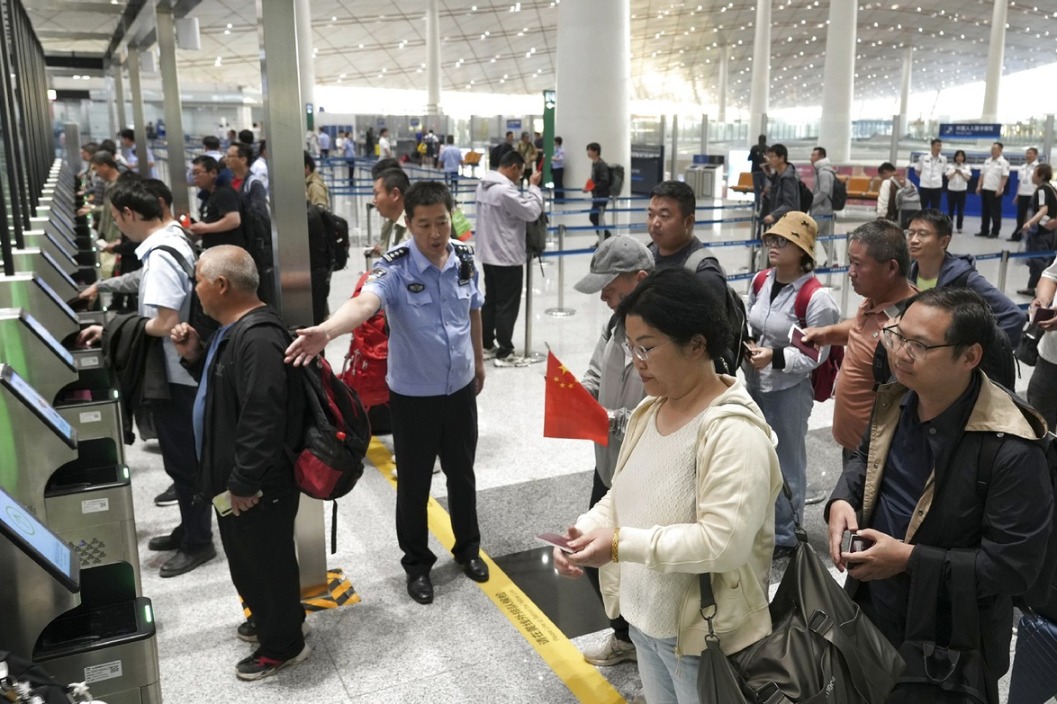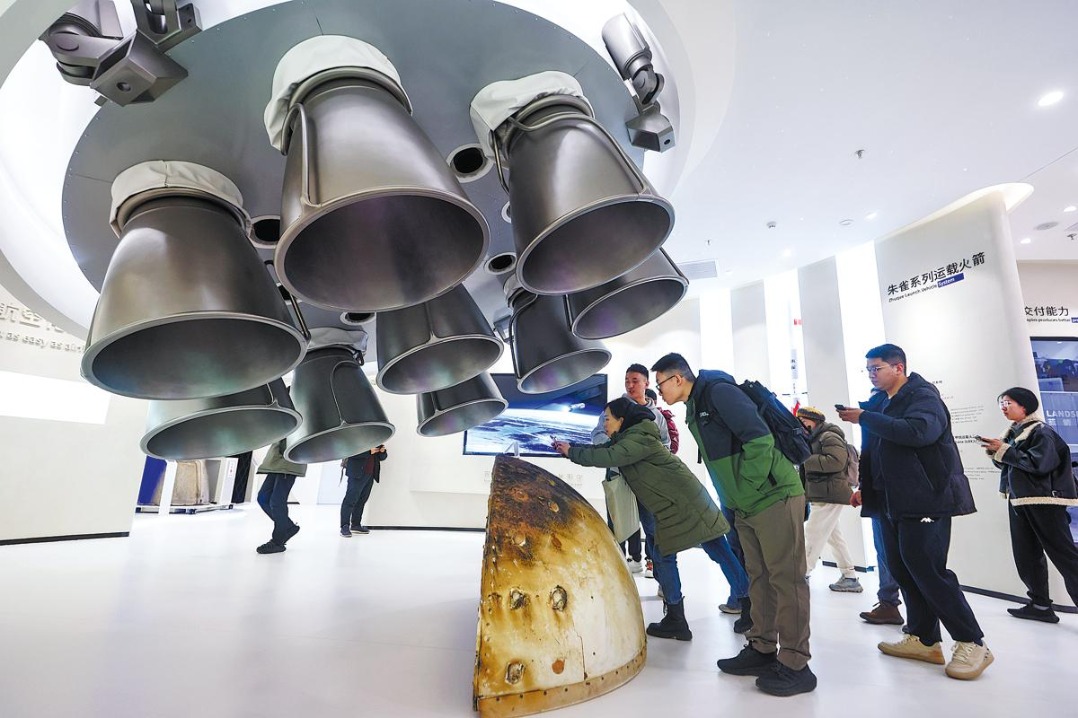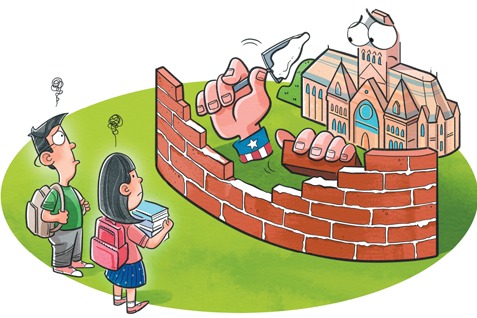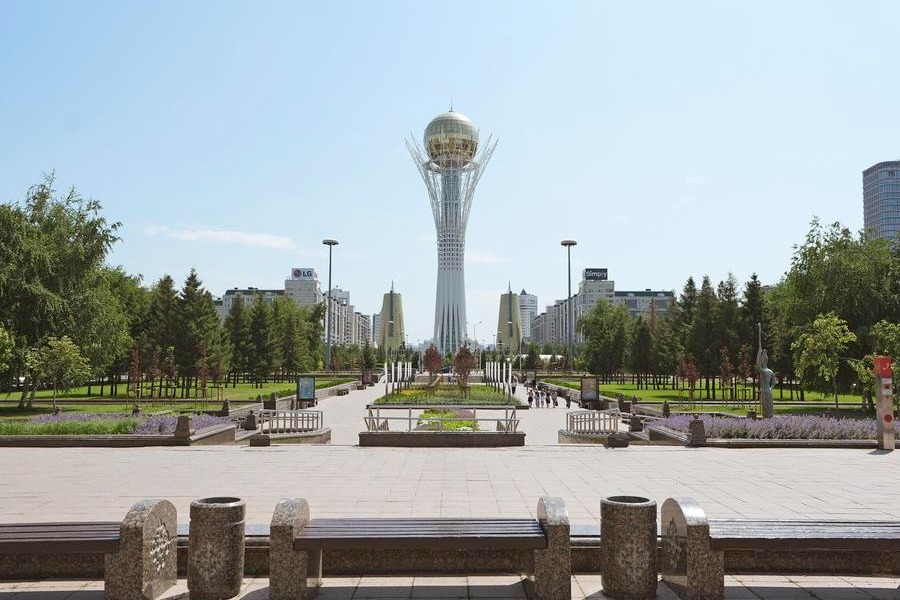Hong Kong's systematic problems stem from the West


Editor's note: Keith Lamb is a University of Oxford graduate with a MSc degree in Contemporary Chinese studies. His primary research interests are international relations of China and China's "Socialism with Chinese Characteristics." The article reflects the author's opinions, and not necessarily the views of CGTN.
Protests, looting, arson, boarded up shops, and vandalism – you could be forgiven for thinking this is Hong Kong, but it's actually Santiago, Chile, which has been the scene of ongoing protests over the last three months. Protests are fuelled on by inequality where investigators at the Fundacion Sol, a non-profit research organization, pointed to the World Bank data showing the wealthiest one percent in Chile own 33 percent of their national income.
Chile is the poster child of the Western neoliberal political-economic form, whose system works primarily for transnational business interests at the expense of the national good and the majority of its citizens. Unfortunately, the result has been extreme inequality that has led to a generation detached from any social contract devoid of the same opportunities their parents had.
The same situation is mirrored in Hong Kong, whose system too is modeled on placing business interests beyond those of the people. The underlying social causes of Hong Kong protests stem from a disinherited generation who see themselves as unable to obtain the same quality of life as their parents, said Martin Jacques, the author of "When China rules the World" in his interview with China Global Television Network (CGTN).
Many of Hong Kong's social and economic problems are rooted in the British colonial legacy as its economy used to run at the expense of Hong Kong citizens. Taxes are kept low to encourage transnational corporations to set up shops in Hong Kong. Capital needed to maintain Hong Kong is raised primarily from governmental land sales to property developers rather than taxing private businesses. This increases the cost of living for ordinary Hong Kongers and shuts the local youth out of the housing market.
The irony is that the US and the UK, which are the prime culprits for spreading the neoliberal economic form around the world, work tirelessly to point the finger of only blaming Beijing for Hong Kong's problems.
In fact, Beijing has respected the political, economic system implemented by the UK as the Chinese central government has always been keeping itself out of Hong Kong's affairs. Despite the continued manipulation of protesters through US-funded National Endowment for Democracy (NED), Beijing remains patient and allows Hong Kong to solve its own problems with a high degree of autonomy as it promised to the special administrative region (SAR) when it returned to the motherland in 1997.
In contrast to Hong Kong, the population of the Chinese mainland, as PEW surveys continually demonstrate, remains optimistic about the future. The fact is China's socialist market system is delivering tangible results as Shenzhen being a case in point. Ten years ago, crossing the border from Hong Kong to Shenzhen, it was clear that Shenzhen was more "underdeveloped" than its prosperous neighbor with poverty more visible in the mainland city.
Today the story is a different one. Hong Kong looks positively shabby in comparison. Shenzhen, the center of China's technology industry, home to world tech giants such as Huawei and Tencent, boasts clean tree-lined promenades, glitzy shopping malls, and world-class infrastructure. It now attracts the best global talents, just like Hong Kong. According to the Statistics Bureau of Shenzhen Municipality and the Census and Statistics Department of Hong Kong SAR, the GDP of Shenzhen is now roughly equivalent to that of Hong Kong and set to surpass it.
Shenzhen's success isn't just a phenomenon that has taken place on China's Eastern seaboard. Cities, even in the far West of China, are in the process of radical renewal. Take Yinchuan, the capital city of Ningxia, a Western Hui autonomous region, as an example. It is a city I'm personally familiar with. Ten years ago, poverty was palpable there. Today its old vast dusty slums have been replaced by modern housing set in a green environment with an advanced transport system that would be the envy of many Northern British cities now in decline.
The simple fact is the system in the Chinese mainland is delivering. The socialist market economy implemented by Deng Xiaoping has been the basis of China's success. The promises of the Chinese Communist Party (CCP) in spreading development across China, contrary to all naysayers, have come to fruition. Had Beijing taken the neoliberal path that Washington and London wanted it to take, then China could not have enjoyed the developmental success it has today.
It is beyond doubt that Hong Kong has its problems, but the solutions need to be further investigated under the "One Country, Two Systems" instead of some western systems. However, Hong Kong protesters have come to falsely deem that Beijing, whose own side of the "One Country, Two Systems" is bringing prosperity to hundreds of millions of their compatriots, is to blame. These protesters believe their salvation lies in adopting a similar system to the US. Ironically, they already have such a system, and it is precisely the system that has led to their impoverishment. If they need any more proof of this, then they only need to look at Chile.


































